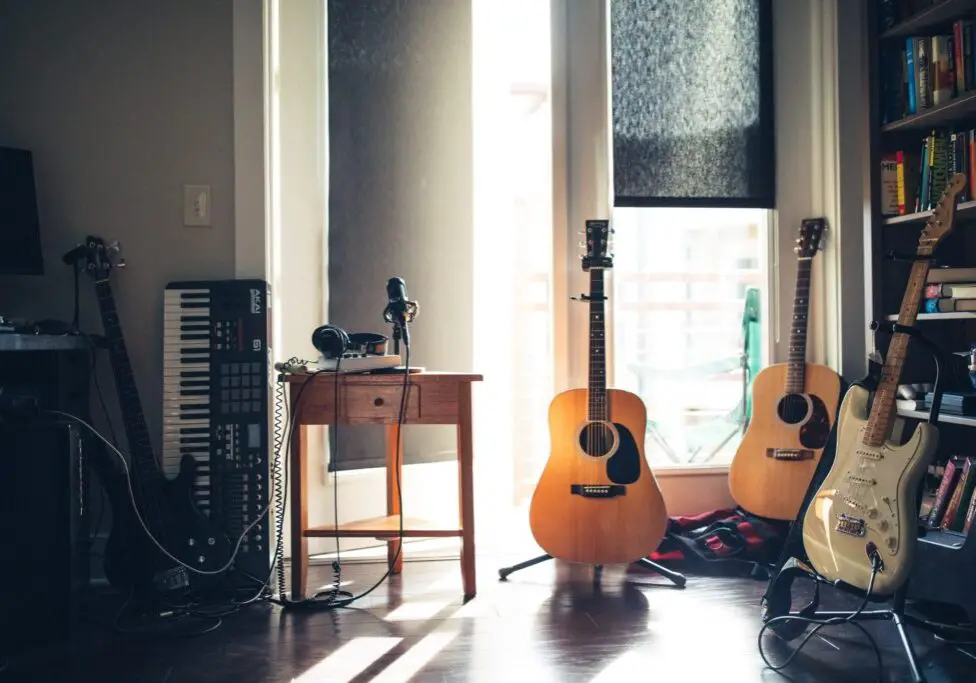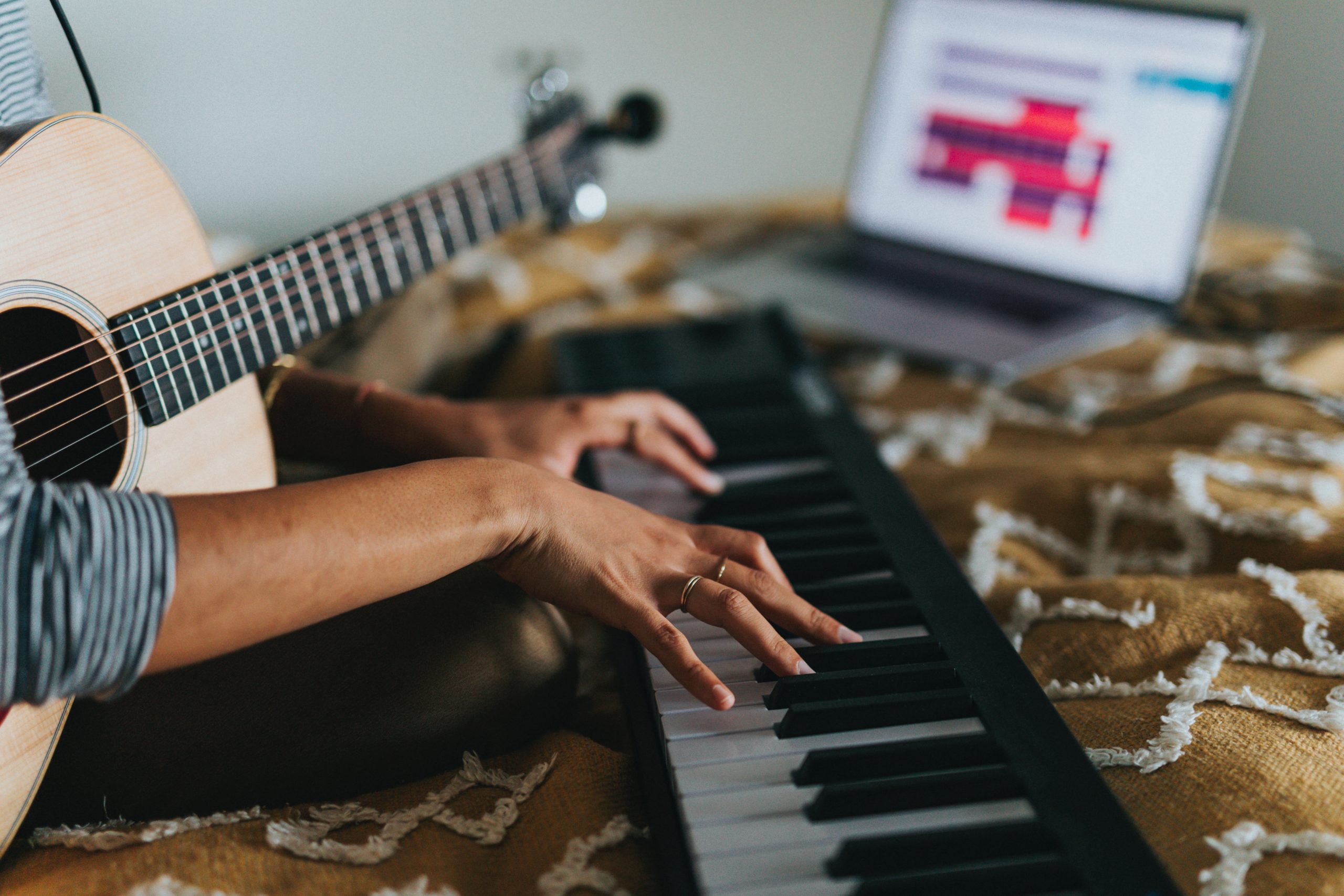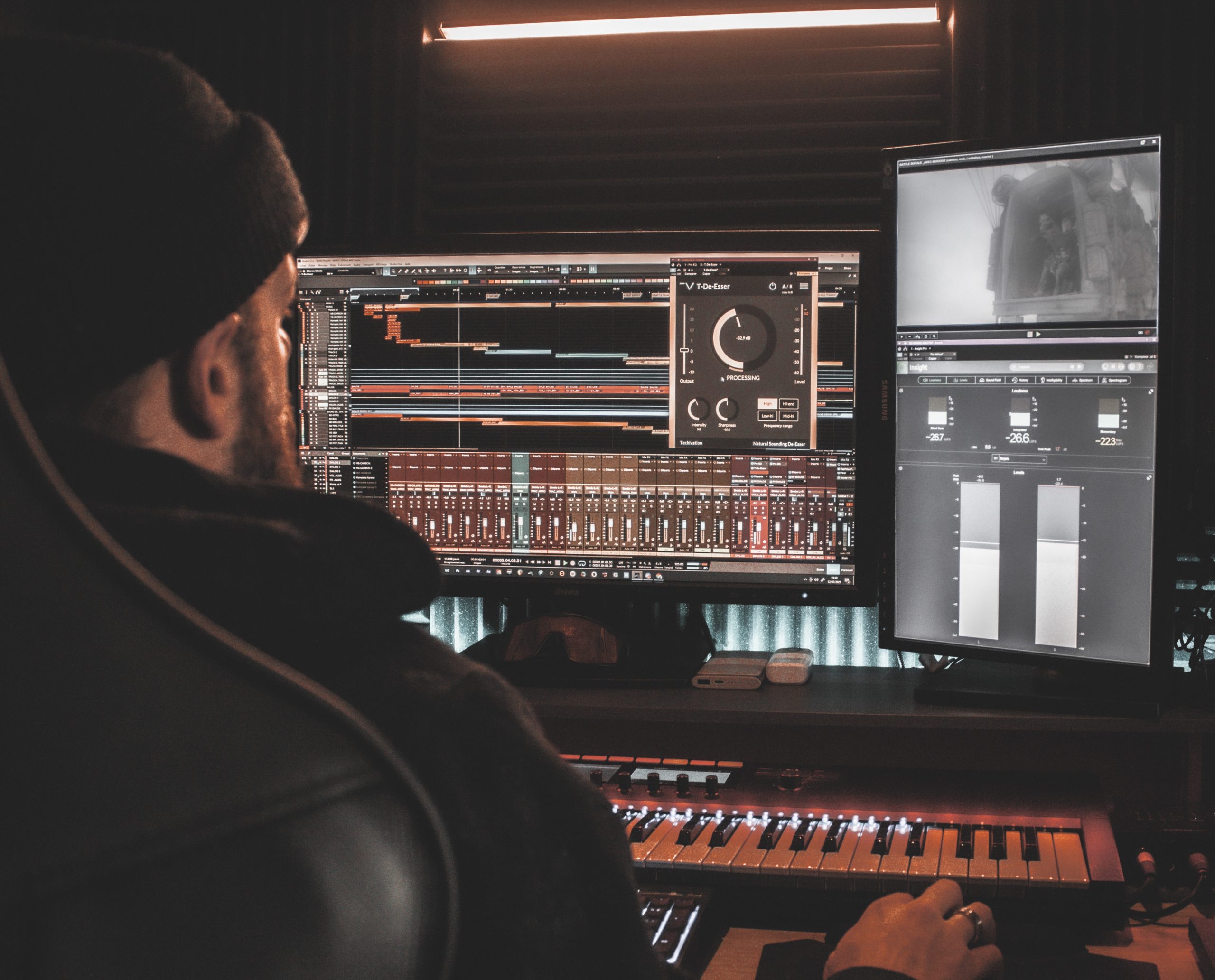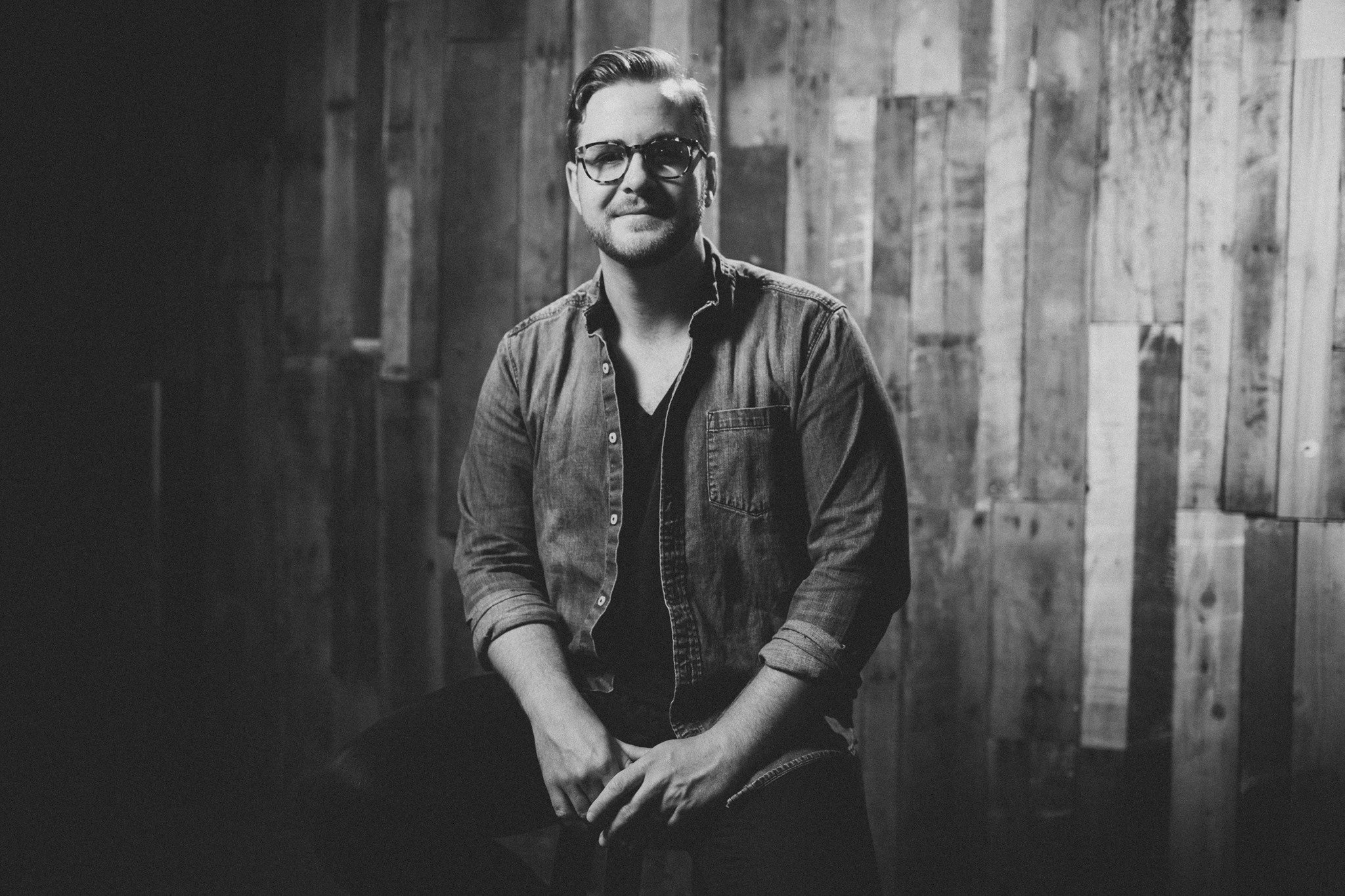If you write songs, sooner or later, you’ll have to record a demo.
The phone in your pocket is good enough to help you remember what you’ve come up with.
But sooner or later, you’ll want to share your finished songs with family, friends, and fans — as well as other musicians and industry people.
And if you land a publishing deal, you’ll be expected to record high-quality versions of your songs, known as demos.
Recording might seem a little intimidating, but creating great demos isn’t difficult.
You just need to know the various types of demos you can produce as well as how and when to use them — which is exactly what I’ll be covering in this post.
So what do I mean by a demo?
Glad you asked!
What is a Demo in Music?
A demo (short for demonstration) is a rough draft or sample version of a song that gives listeners an idea of what the final song will sound like.
The demos we’ll talk about in this post are high-quality recordings of your songs that you and/or your publisher will use to generate interest in artist cuts or licensing deals.
Your demos should sound professional but they don’t necessarily have to be radio-ready. Instead, they’re preliminary recordings created as a step before the final studio recording.
Think of demos as your rough drafts that you’ll polish as you go — intermediate steps that help you craft your songs into finished products.
Drafts are important in all creative work. Not even the most talented or successful songwriters create a finished song all at once.
If you were painting a Bob Ross landscape, for example, you’d paint the sky and the rest of your background first and then add several layers of happy trees, clouds, and mountains over the top before finally declaring your painting “done.”
As a songwriter, you’re doing the same thing with your recordings — putting down the foundation and then building layers on top.
And because recording is so expensive, you want to be as prepared as possible. That’s where demos come in.
How professional your demos need to be depends on your reasons for making them.
Why You Need Demos of Your Songs
The main purpose of a pro demo is to sell your song.
You can also use a demo in music to sell “you” as a performer and songwriter, using them to book gigs or gain other industry attention.
That said, the term “demo” is used in many ways. Here are a few of the main reasons songwriters record demos:
1. To capture your song ideas
These are typically the simplest recordings. When you write a lot of songs, I can guarantee you won’t remember them all.
You can use basic phone captures and file them away so that you can come back to them when you have time to flesh out your ideas. Your initial recordings should capture the original energy and emotional intensity of the creative process while you’re in the middle of it.
Don’t forget to keep all your ideas organized in one place using songwriting software.
2. To polish your ideas
Next, you’ll want to pull out those initial rough recordings that you made so that you can listen again and improve on them.
Is your song finished? Is there something you missed? Are there ways to make the song better? You’ll be able to hear that once you have stepped away for a day or two. You might also want to use these rough recordings to get feedback from co-writers or other musicians.
3. To prepare to record in the studio
Studio recording is expensive. The last thing you want is to still be working out your song while you’re on the clock, paying for studio time.
So make sure you have all your ideas together and your musicians are familiar with the tracks. You should have already made decisions on BPM, lyrics, key, arrangements, etc., so that you can hit the ground running.
If you decide to record your demos at home, you can save time and money. Your initial recordings will help you plan and get the best performances you can on your final, pitch-worthy demos.
4. To pitch to other industry folks
If you get a publishing deal, you’ll be expected to produce demos. It’s part of the job. Your publisher will use those demos to pitch your songs to artists, and producers will use them to get ideas.
These demos need to be the best you can make them — very nearly radio-ready.
If you’re an indie songwriter, you’ll share your demos with other musicians who may perform or record with you. You can also send them to booking agents at venues or labels or other artists (by request). You can also submit them for film and TV sync licensing.
If your goal is to get signed by a label, you may be asked to send three or four of your best songs in a single demo recording. Never send unsolicited submissions!
5. To build a portfolio as a songwriter
Your demos are your body of work over your career. You never know when something you wrote years ago might have a moment. (Running Up That Hill, anyone?)
When you approach publishers, they’ll always ask, “What else have you got?” When you have a portfolio, you’ll have something to show them — and you’ll multiply your opportunities as a result.
6. To grow as a musician
When you record demos, you’ll learn more about production and recording of course, but you’ll also grow as a musician. You’ll learn how to write and record different parts, how to do arrangements, and how to get a great mix. You may even learn to play more instruments.
Bonus? All of these skills make you more valuable as a collaborator.
7. To get your fans excited
Finally, as you grow your fan base, you can use your demos to build buzz. Labels and publishers definitely want to see that you can grow an audience.
Especially if you’re an indie, it only makes sense to share your music on social media, SoundCloud, Bandcamp, YouTube, etc.
How to Record a Demo for Music
Generally, you have two choices when it comes to recording demos: you can create them at home or you can go to a professional recording studio.
Each approach has its advantages.
Recording at home
Setting up a home recording studio requires some upfront investment but it can save you money over the long run. You’ll have a bit of a learning curve when it comes to your equipment and software. But you can record whenever it’s convenient, without having to wait for an opening in a studio’s schedule.
Record in a professional studio
If you decide to record in a professional studio, you might pay more. But you can save time if you’re well prepared in advance.
Recording in a studio can also be easier if you’re not a technical person or if you don’t have the right equipment or space. Either way, you might get better performances and recordings in a pro studio.
And of course, you can always try one approach and then change your mind later. Fortunately, it’s easier than ever to set up and learn how to use a home studio to get great sounding demos.
7 Steps to Recording Your Demos
First off, you need to know why you’re making your demos.
Do you want scratch (rough draft) tracks that you can share before going into the studio? Or do you need pro versions that can be pitched to artists?
Knowing your goal will help you decide how to proceed.
1. Assemble your equipment. You’ll need a DAW (digital audio workstation.)
Next, grab an audio interface — this will convert your analog instrument and vocal signals into digital and vice versa, so that you can record and playback on a computer.
Your recording interface will also include preamps, which cleanly boosts your microphone signal to full volume so the software can use it.
If you don’t have a DAW or interface yet, you can see my recommendations here.
Finally, you’ll need your instrument(s) — usually at least a guitar or piano — and a microphone.
2. Make sure that your song is as good as you can make it before recording your final demo.
Even the best studio musicians, producers, and recording equipment can’t fix a poorly-written song.
3. Record a scratch track of yourself playing the song through once, start to finish.
Use vocals and guitar or piano. You’ll want to use a click track here as well, since this run-through will be the foundation of your song.
4. Start layering final versions of instruments on top of your scratch track.
Usually you’ll start with drums first, then bass, then guitar/piano and other instruments, and finally vocals.
5. Get a good mix, typically adding compression or reverb.
6. Be sure to save your songs!
Add them to your catalog, organized by genre, type, date, topic, co-writer, or anything that makes sense to you.
7. Consider mastering your songs.
It’s a bit of an added expense but if you’re using your demos for pitching, it will make your track sound much more professional. There are also excellent, wallet-friendly AI alternatives for mastering.
Do’s and Don’ts of Sending Demos
Here’s how you can use your demos once they’re ready for prime time.
DO send demos to:
Collaborators: You can send rough demos to other songwriters who may be co-writing with you, musicians you’ll be recording with, and producers who can come up with ideas. If you have a publishing deal, you’ll send final demos to your publisher.
Industry people: You can send high-quality demos to promoters or booking agents, managers, labels who might want to sign you or your band, or publishers who have requested them (if you’re unsigned). Make these demos the best they can be — you may only have one time to make a great impression.
Sites that have submission guidelines: You may send demos to reputable sites that are open to submissions, including sync libraries, certain smaller, indie niche publishers, etc. Be sure to vet the organizations (ask around to make sure they’re legit) and follow the guidelines exactly.
DON’T send demos to:
Publishers or labels who haven’t requested them: NEVER send unsolicited demos. That’s not how the music industry works today. Instead, only send them when you are approached and asked to. Network and build relationships first. Aside from getting a company into legal trouble (for example, a songwriter could claim someone they sent an unsolicited demo to stole their song), it’s considered spammy. You’ll give the impression that you’re desperate (at worst) or don’t understand the industry (at best).
Build Your Songwriting Catalog with Professional Demos
There you have it — everything you need to start recording high-quality, professional demos for your songs.
If you want to take your songwriting career to the next level, having great demos (and knowing how and when to send them) will definitely set you apart.
And it gets easier to create great recordings the more you do it.
So get started today! I can’t wait to hear what you come up with.
If you want to make sure your songs are the best they can be, be sure to grab your copy of my ebook, “How to Write a Song.“




